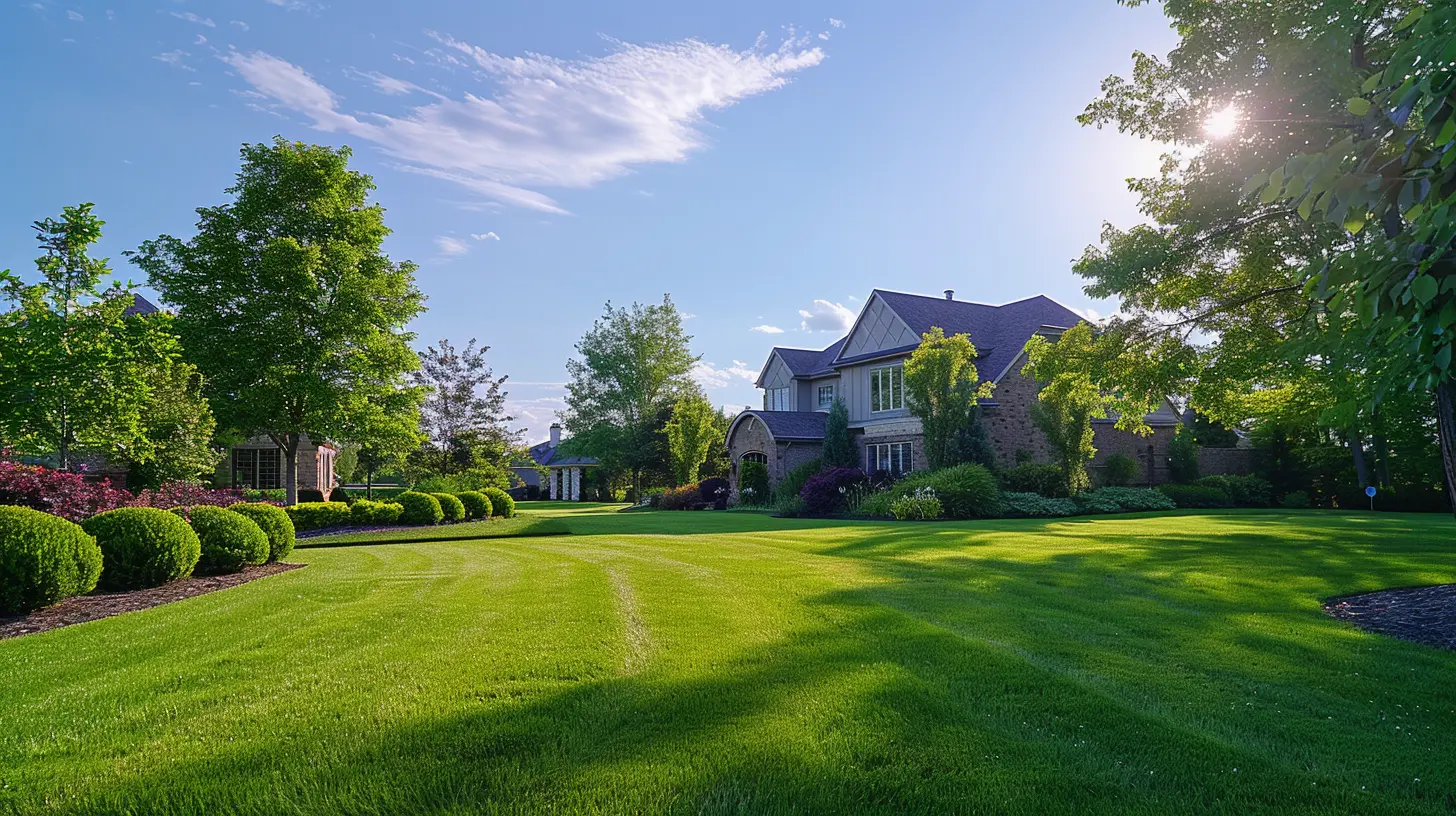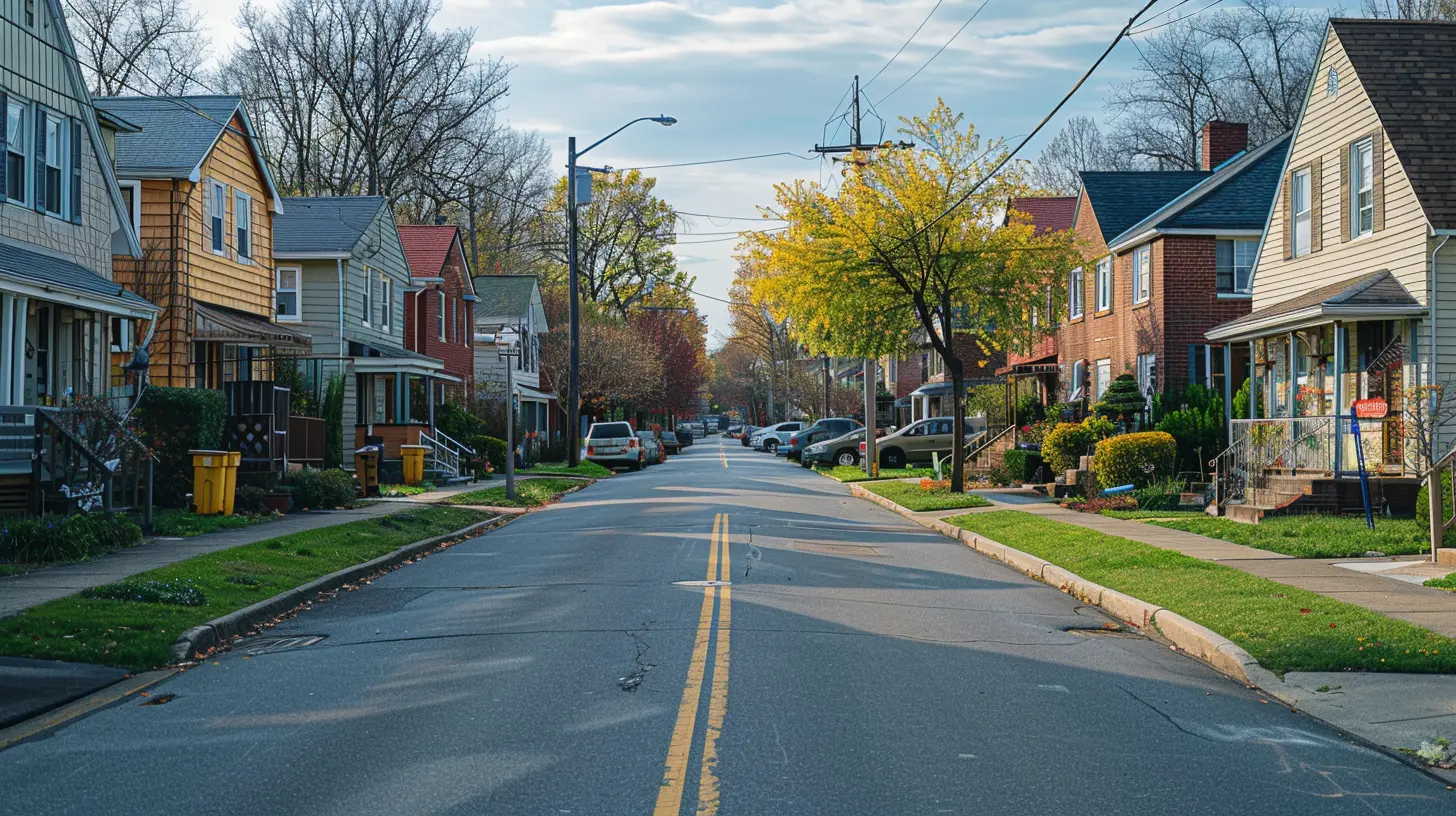How to Navigate Local Zoning Laws When House Hunting
20 March 2025
So, you're ready to buy a house. You've saved up, browsed countless listings, and daydreamed about that perfect corner lot with the white picket fence. Exciting, isn't it? But, hold up—before you dive headfirst into your house-hunting journey, there's one not-so-glamorous hurdle to tackle: zoning laws.
Yeah, I know what you're thinking. "Zoning laws? Ugh, sounds complicated and boring." But trust me, grasping the basics of local zoning regulations is a total game-changer. It can save you from future headaches and ensure your dream home doesn’t turn into a nightmare.
In this post, we'll break down what zoning laws actually are, why they matter when you're house hunting, and how you can navigate them like a pro. Ready? Let’s jump in! 
What Are Zoning Laws, Anyway?
Alright, let’s start with the basics. Zoning laws are local regulations that dictate how land can be used in specific areas. Think of them as a rulebook that decides what can and can’t be built on a particular plot of land. These rules divide towns and cities into zones—residential, commercial, industrial, agricultural, or mixed-use.For example, you wouldn’t want a noisy factory setting up shop next to your charming suburban cul-de-sac, right? Zoning laws prevent that kind of chaos. They’re a way to keep everything organized, maintain property values, and ensure neighborhoods function smoothly.
Why Should You Care as a Homebuyer?
Great question! Here's the deal: zoning laws directly impact how you can use the property you buy. Let’s say you find the cutest little bungalow in a neighborhood you adore. But, after you move in, you discover local zoning restrictions won’t let you run your dream home bakery from your kitchen. Ouch.Or worse—imagine buying a property with tons of potential, only to learn that you can’t add that backyard guesthouse or turn the garage into a rental unit because it’s not zoned for multifamily use. Yikes, right?
Zoning laws aren't just fine print—they're the framework for what’s possible (and not possible) with your future home. Ignoring them during your house hunt can lead to some serious buyer’s remorse. 
Common Types of Zoning (And What They Mean for You)
Let’s break down the main zoning categories so you can get familiar with the lingo.1. Residential Zoning
This one’s pretty straightforward—it covers land designated for housing. But here’s the kicker: not all residential zones are created equal.- Single-family zones: Only allow detached houses. Perfect if you’re craving privacy but not great if you’re planning to convert your property into a duplex or triplex.
- Multifamily zones: Allow apartments, condos, and townhomes. If you’re thinking about investing in rental properties, these zones are your friend.
2. Commercial Zoning
As the name suggests, commercial zones are for businesses. Looking at a live/work space or thinking of running a small shop out of your future home? Make sure to check if the property falls into this category.3. Industrial Zoning
This is where factories, warehouses, and manufacturing operations are typically located. Unless you’re into steel mills and heavy machinery vibes (no judgment), you’re probably not house hunting here.4. Agricultural Zoning
Dreaming of a farmhouse with chickens and a vegetable garden? You’ll want a property zoned for agricultural use. These zones often have specific restrictions regarding livestock and farming activities.5. Mixed-Use Zoning
The best of both worlds! Mixed-use zones allow for a combination of residential, commercial, and even industrial purposes. Think trendy apartments above coffee shops in urban areas.
How to Research Zoning Laws Before You Buy
Feeling overwhelmed yet? Don’t worry—I’ve got you. Here’s a step-by-step guide to researching local zoning laws during your house hunt.1. Check the Property’s Zoning Classification
Start by asking your real estate agent or the seller about the property’s zoning. Most listings will include this information, but it doesn’t hurt to double-check.2. Visit the Local Zoning Office
Every city or county has a zoning office (or a planning department) where you can get detailed info on specific properties. Not up for an in-person visit? Many offices have online databases where you can search by address.3. Read the Zoning Ordinances
This is where the fine print comes in. Zoning ordinances outline what’s allowed—and what’s not—in each zone. They’ll cover things like building height restrictions, parking requirements, and whether you can keep chickens in your backyard.4. Ask About Future Development Plans
Zoning laws aren’t set in stone. They can change based on city planning and future development projects. Before buying, find out if there are any rezoning plans that could affect the property down the line.
Red Flags to Watch For
When it comes to zoning laws, there are a few potential red flags you’ll want to be on the lookout for during your house hunt.1. Nonconforming Use
Sometimes, a property is being used in a way that doesn’t align with its zoning classification. This is called "nonconforming use" and can be a risky purchase. If the city decides to enforce zoning compliance, you could be forced to make expensive changes—or stop certain activities altogether.2. Zoning Violations
Did the previous owner build an unpermitted addition or structure? If so, you might inherit the headache (and the fines) after closing. Always ask for proof of permits for any major changes to the property.3. Restrictions on Future Plans
If you’re planning to expand, renovate, or run a home-based business, make sure the zoning laws won’t throw a wrench in your plans. It’s better to know upfront than to be blindsided later.Tips for Navigating Zoning Laws Like a Pro
Now that you’ve got the basics down, here’s how to stay ahead of the game.1. Hire the Right Real Estate Agent
Your agent should be knowledgeable about local zoning laws and able to guide you through the process. A good agent is like your zoning GPS—they’ll help you avoid wrong turns and dead ends.2. Work with a Zoning Attorney (If Needed)
If things get tricky, like rezoning requests or variances, a zoning attorney can be a lifesaver. They’ll help you navigate legal complexities and ensure everything’s above board.3. Get It in Writing
If you’re depending on a specific zoning use (like running a business from home), get written confirmation from the local zoning office. Verbal assurances are nice, but documentation is key.4. Be Flexible
Sometimes, zoning laws might throw a wrench in your plans. Stay open-minded and consider creative solutions—like finding a property in a mixed-use zone or applying for a variance (permission to override certain zoning restrictions).Wrapping It Up
Navigating local zoning laws might not be the sexiest part of house hunting, but it’s definitely one of the most important. Think of it as the guardrails that keep your homeownership dreams on track.By understanding the basics, asking the right questions, and doing your homework, you’ll be well-equipped to find a property that not only fits your lifestyle but also aligns with your vision for the future.
So, grab your house-hunting checklist, do some zoning due diligence, and get ready to find that perfect spot to call home. You’ve got this!
all images in this post were generated using AI tools
Category:
House HuntingAuthor:

Lydia Hodge
Discussion
rate this article
8 comments
Sylas Lopez
Understanding local zoning laws is crucial for successful house hunting; they dictate property use and future development potential.
April 6, 2025 at 9:00 PM

Lydia Hodge
Absolutely! Familiarizing yourself with local zoning laws is essential for making informed decisions and ensuring your dream home meets your needs now and in the future.
Phoenix Howard
How do local zoning laws impact property value and future renovations?
April 5, 2025 at 2:49 AM

Lydia Hodge
Local zoning laws can significantly impact property values and future renovations by determining what can be built or modified on a property. Restrictions can limit development potential, while favorable zoning can enhance value and renovation opportunities. Understanding these regulations is crucial when house hunting.
Lauren Roth
Navigating local zoning laws can seem daunting, but it’s an essential step toward finding your dream home! Embrace the journey with curiosity and determination. Knowledge is power—understanding these regulations can lead you to the perfect property that truly fits your vision. Happy house hunting!
April 4, 2025 at 7:49 PM

Lydia Hodge
Thank you for your encouraging words! Navigating zoning laws is indeed crucial for finding the right home. Embracing this process will empower buyers to make informed decisions. Happy house hunting!
Hailey Morales
Great insights! Zoning knowledge is essential for homebuyers.
April 3, 2025 at 3:28 AM

Lydia Hodge
Thank you! Understanding zoning laws can truly empower homebuyers in their search.
Marie Hamilton
Zoning laws? No sweat—happy house hunting!
April 1, 2025 at 11:35 AM

Lydia Hodge
Thanks! Glad to hear you're feeling confident about house hunting!
Tia Mathews
Empower your house hunting journey! Understanding local zoning laws isn't just about compliance; it's your tool to unlock potential, envision future possibilities, and make informed choices that shape your dream home. Dive in and discover your ideal space!
March 31, 2025 at 10:29 AM

Lydia Hodge
Thank you for highlighting the importance of understanding zoning laws! They truly can transform your house hunting experience and empower informed decision-making. Happy house hunting!
Zealot Sharp
Navigating local zoning laws can seem daunting, but with knowledge and persistence, you can uncover hidden gems! Stay informed, ask questions, and trust your journey to find your perfect home.
March 30, 2025 at 11:46 AM

Lydia Hodge
Thank you for your insightful comment! Staying informed and asking questions are indeed key to successfully navigating zoning laws in your home search. Happy house hunting!
Finley McAlister
Understanding zoning laws ensures your dream home meets future lifestyle and investment needs.
March 22, 2025 at 12:58 PM

Lydia Hodge
Absolutely! Knowing zoning laws helps you make informed decisions that align with your future plans and protect your investment.
MORE POSTS

Staging Your Home for Pet Owners Without Alienating Non-Pet Buyers

Downsizing on a Budget: How to Save Money While Moving

Sustainability Initiatives in Modern HOA Communities

The Ultimate Guide to Finding Your Dream Luxury Home

Ethical Practices for Real Estate Investors

How Mixed-Income Housing is Shaping Modern Urban Areas